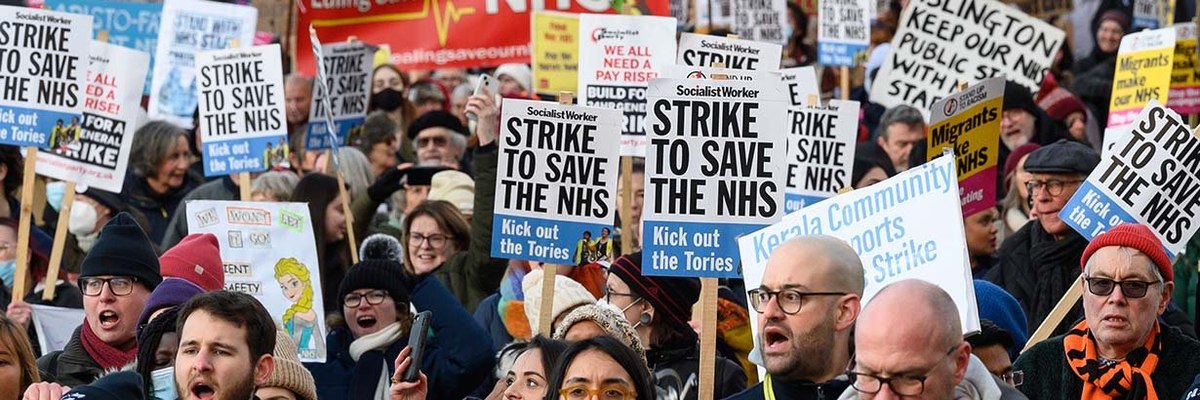Nurses are the most supported in their efforts to receive higher pay
Since summer last year, the UK has seen strikes across a wide range of professions. While some groups, like barristers, have agreed pay deals with the government, there is no end in sight to industrial action from others.
YouGov has been tracking attitudes towards the strikes for months, and looking at public opinion over that time shows a remarkable consistency. If it had been the government’s hope that holding out against agreeing to the unions’ demands would see the public eventually turn against strikers, they have been sorely mistaken. However, union leaders will likewise be unhappy that putting their members’ case to the public hasn’t seen the public swing behind them either.
A previous YouGov study indicates that part of the reason there has been so little change could be because support for strikes is so closely correlated with belief that the professions involved make a significant contribution to society, and to the belief that those workers are underpaid.
With inflation remaining stubbornly high, workers aren’t getting any less underpaid – and it is hard to see how the public would come to see workers like doctors, teachers and nurses as not providing a serious social good.
The same study also showed, causing disruption is not necessarily a big reputational risk for many professions, with perceived disruption of strikes not correlating with support for striking workers.
Where does support for strikes stand?
Nurses hold the strongest backing from the public when it comes to strikes, with 61% supporting nurses’ strikes, compared to 31% opposed.
Ambulance workers are similarly well-backed by the public: 58% support strike action by ambulance staff compared to 33% opposed.
Both of these professions have seen the largest fluctuations in support since late January – when we began using a consistent question wording to track support for strikes* – with support down 7pts from their respective peaks of 68% and 65%. While these shifts aren’t insignificant, nor are they particularly big.
There is also every chance support could tick back up again as nurses and ambulance workers gain publicity when strike dates draw near – nurses’ strikes this year don’t seem to have actually diminished support for nurses. Around the time of nurses’ strikes in January-March, our three polls showed support standing between 63% and 67%, and opposition from 29% to 31%.
Likewise, although there was a 6pt dip in support for rail workers’ strikes between our February and March polls, no strike action actually took place in that time period, and other poll intervals during which strike action took place did not result in noticeable lasting changes in support.
Other professions
Other professions that receive significantly more support than opposition when it comes to pay protests are junior doctors (56% support), firefighters (54%). The public are more divided when it comes to many other groups we asked about, like senior doctors, teachers and postal workers, and outright oppose strikes by barristers, passport office staff and train drivers.
* Data shown from prior to 19-20 January 2023 is gathered from multiple individual surveys that all used slightly different wording, in some cases asking about strikes in the abstract, in other cases asking about past strikes or future strikes. Because the design of these surveys is not consistent with that from 19-20 January onwards, we have not discussed them in this article, although they are indicated on the first chart in a paler shade for reference
Photo: Getty





